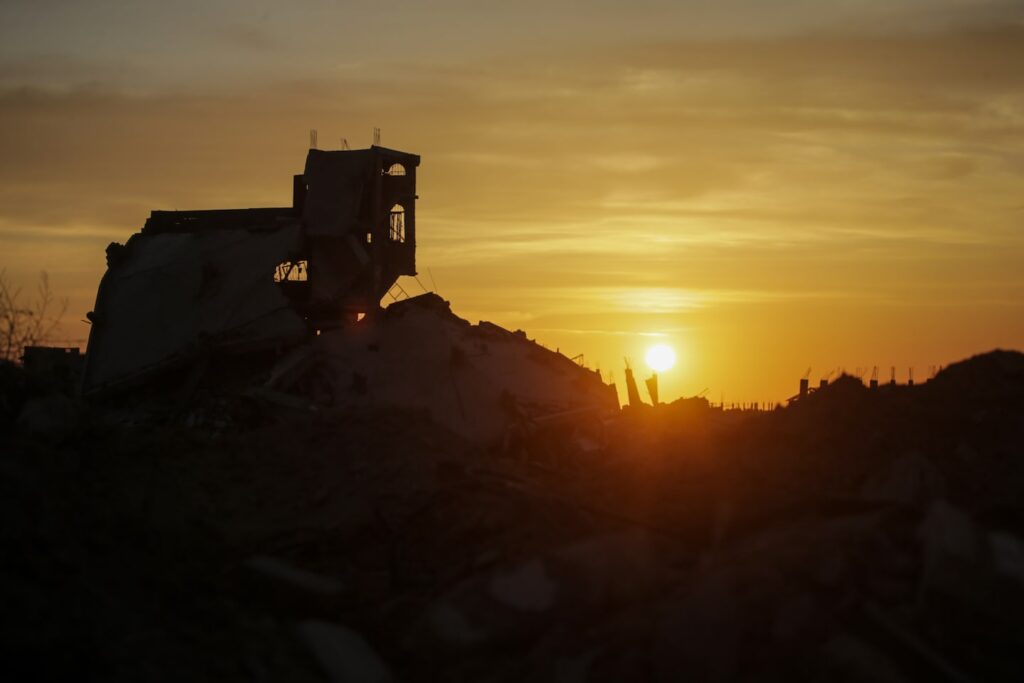When I asked a senior Israeli official what the “next day” would be like in Gaza, assuming a ceasefire, he gave me a candid but chilling answer: “It will be long and bloody.”
That's the stark reality facing U.S. mediators seeking a ceasefire with renewed support from the UN Security Council: Even if Hamas agrees and major fighting ends, Israel will be committed to disarming the terrorist group. Any future Israeli government is unlikely to accept anything less. And Hamas will undoubtedly resist.
What does that mean when we talk about a post-war Gaza? To me, it means that the international community, led by the United States, must create a security framework to reduce violence and civilian casualties as this horrific conflict draws to a close. The Biden administration, with the support of the Israeli military leadership, if not Prime Minister Benjamin Netanyahu, is moving in that direction.
Secretary of State Antony Blinken visited Israel and the region this week, continuing his on-and-off diplomacy. He reminded Netanyahu that “total victory” can be an illusion, recalling how the U.S. learned firsthand in Iraq and Afghanistan that it could win every battle and still lose the war because it lacked a realistic political strategy.
 Follow this author David Ignatius' opinion
Follow this author David Ignatius' opinion
Blinken's hope is that Hamas leaders will accept the U.S. plan for a ceasefire and hostage release, beginning the long and undoubtedly difficult road to a lasting peace. The group sent a “response” on Tuesday, asking for clarification, but administration officials did not comment on what that might mean. If Hamas agrees, humanitarian aid and reconstruction could begin immediately. But Blinken is in talks with Israel and Arab countries about a path to de-escalation regardless of Hamas' decision.
The good news is that most Israeli leaders agree that it is time to think about a power transition in Gaza. As one U.S. official put it, Israel wants to “downshift” in Gaza, in part to focus more on the growing threat from Hezbollah in Lebanon.
Israel has a plan for the next day, and officials say the war cabinet (which includes Prime Minister Netanyahu) approved it before opposition leader Benny Gantz resigned last weekend. The plan was proposed by Defense Minister Yoav Galant, who remains in the government. It's called a “humanitarian bubble.”
The idea is for Israel to begin a unilateral transition of power in northern Gaza, in areas largely free of Hamas fighters, and then after establishing a strong border, it would withdraw and hand over governance and security to a loose council made up of powerful local clans, merchants, trade unions and other notables.
To keep Hamas out and maintain order, the ruling group would rely on vetted local Palestinians, backed by international forces, including experienced Arab troops from countries such as Egypt. The idea is that the “bubble” might also hire Western security contractors such as Blackwater, just to be safe.
U.S. officials have told me they are skeptical of the plan, and I share their doubts. It's a cross between plans to build “gated communities” in fictitious far-flung suburbs outside Gaza and the disastrous “strategic villages” initiative in Vietnam. Moreover, the plan has no connection to the Palestinian Authority, which is not only the legitimate governing group but also Hamas' most powerful Palestinian enemy.
Israeli officials counter that the bubble is a test run to gradually elicit support from other Palestinians who desperately need jobs and safety. Officials say the aim is to weaken Hamas and create an alternative political space where humanitarian aid can be delivered safely and reconstruction can begin. Meanwhile, outside the bubble, the fight to eliminate Hamas will continue.
Some veteran Israeli officials have argued for a bubble approach because most Palestinians in Gaza don't believe Hamas has lost power. They argue that Israel had to seize the Rafah Corridor last month and thwart Hamas' smuggling operations to break that mentality. Similarly, Israel must continue its efforts to remove Hamas's leadership and remain steadfast in its goal of demilitarization.
Relying on the PA makes no sense, officials argue, because it has only a few thousand trusted members in Gaza and its leaders are old, tired and disliked by the people. The PA has yet to have a “renewal,” only a “filler,” one official said.
What does the Biden administration's outlook look like? It starts with the reality that Israel cannot do it alone. With or without a ceasefire, it needs the support of the international community to end the war. The Security Council has backed the U.S. plan for a gradual ceasefire and can then support a framework for a real transition. It would give transitional governing bodies and international security forces legitimacy to work with local Palestinians.
We're not yet at the next day, and even if we get there, it won't be a bloodless process, but this may be the “in-between day.” Biden and his team deserve credit for sticking it out, fending off criticism from the right and left, to try to stop this horrific war.



